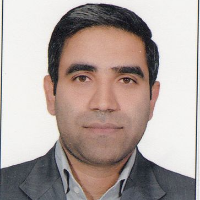Solving Linear Fractional Programming Problems in Uncertain Environments: A Novel Approach with Grey Parameters
Author(s):
Article Type:
Research/Original Article (دارای رتبه معتبر)
Abstract:
Fractional programming is a significant nonlinear planning tool within operation research. It finds applications in diverse domains such as resource allocation, transportation, production programming, performance evaluation, and finance. In practical scenarios, uncertainties often make it challenging to determine precise coefficients for mathematical models. Consequently, utilizing indefinite coefficients instead of definite ones is recommended in such cases. Grey systems theory, along with probability theory, randomness, fuzzy logic, and rough sets, is an approach that addresses uncertainty. In this study, we address the problem of linear fractional programming with grey coefficients in the objective function. To tackle this problem, a novel approach based on the variable change technique proposed by Charnes and Cooper, along with the convex combination of intervals, is employed. The article presents an algorithm that determines the solution to the grey fractional programming problem using grey numbers, thus capturing the uncertainty inherent in the objective function. To demonstrate the effectiveness of the proposed method, an example is solved using the suggested approach. The result is compared with solutions obtained using the whitening method, employing Hu and Wong's technique and the Center and Greyness Degree Ranking method. The comparison confirms the superiority of the proposed method over the whitening method, thus suggesting adopting the grey system approach in such situations.
Keywords:
Language:
English
Published:
Control and Optimization in Applied Mathematics, Volume:9 Issue: 1, Winter-Spring 2024
Pages:
169 to 183
https://www.magiran.com/p2723699
سامانه نویسندگان
مقالات دیگری از این نویسنده (گان)
-
Hybrid model for evaluation of DMUs with principles of strong and weak disposability in the presence of grey undesirable factors
Jafar Pourmahmoud*, Mahdi Eini, , Saeid Mehrabian
Iranian Journal Of Operations Research, Summer and Autumn 2023



